A mirror does more than just show a reflection. For centuries, it has been an object of fascination, mysticism, and fear. While a simple fear might seem irrational, the anxiety many people feel around mirrors is often rooted in deep spiritual beliefs and complex psychological processes. The spiritual meaning of mirror fear and its psychological underpinnings reveal why this everyday object can hold such immense power over us.
Understanding these interpretations can help demystify the anxiety and provide a path toward healing. This article will explore the profound spiritual and psychological reasons behind mirror phobia, examining why a simple piece of glass can evoke such strong emotions and what those feelings might say about our inner world.
The Spiritual Meaning of Mirror Fear: Portals, Souls, and a Link to the Other Side
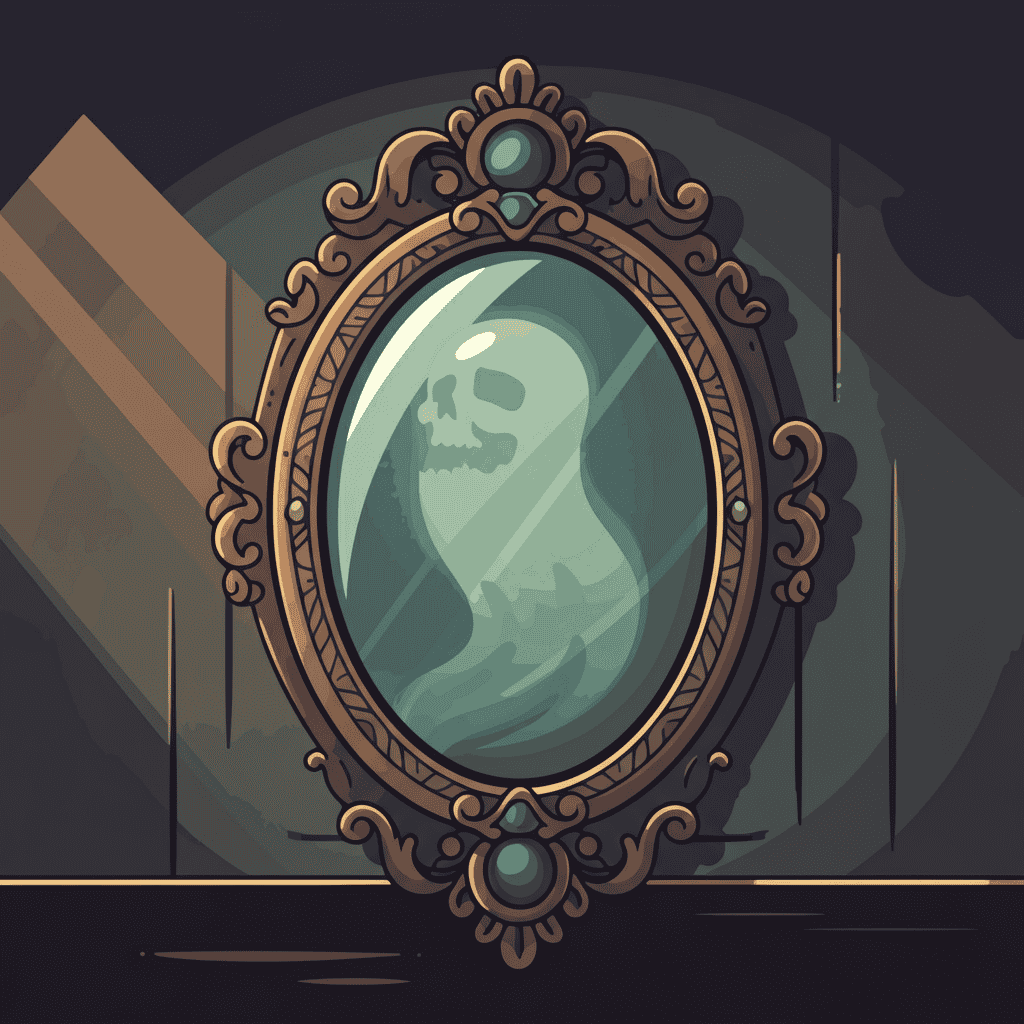
Long before psychology offered explanations, cultures worldwide created rich mythologies to make sense of the uncanny experience of seeing one’s double. These ancient beliefs are still embedded in our collective unconscious and contribute significantly to modern mirror anxieties.
1. Mirrors as Portals to the Spirit World
One of the most enduring spiritual beliefs is that mirrors are not just reflective surfaces but gateways to other realms. This idea is a staple in folklore and spirituality. It suggests that the world seen in the glass is not just a copy of our own but a separate dimension, one that spirits can travel through.
This belief fuels the fear that looking into a mirror, especially at night or during a moment of vulnerability, could open a door for entities to cross over. The fear isn’t of the reflection but of what might emerge from it. This concept is a cornerstone of spectrophobia and explains why so many feel a presence when looking into a mirror in a dark room.
2. The Mirror as a Soul-Catcher
Another pervasive superstition is that a mirror has the power to capture a part of a person’s soul. This is the origin of the tradition of covering mirrors in a house after a death. The fear was that the lingering soul of the deceased could become trapped in the glass, unable to move on.
This belief also extends to the living. It was thought that if someone’s reflection was captured (for example, if a mirror was broken while they were looking into it), their soul would be damaged. This is the root of the “seven years of bad luck” superstition. For someone with mirror anxiety, the fear of losing a part of themselves to the reflection can be a powerful, subconscious driver of their phobia.
3. Divination and Seeing the Unseen
Historically, mirrors and other reflective surfaces (like water or polished stones) were used for scrying—a form of divination used to see the future or communicate with spirits. This practice inherently links mirrors to the unknown and the supernatural.
This association implies that a mirror can show you things beyond normal perception, including glimpses of your own fate or the presence of unseen entities. This adds a layer of unpredictability and danger to the act of looking in a mirror. The fear becomes about what hidden truths or terrifying futures the mirror might reveal against your will.
Psychological Reasons for Fear of Mirrors
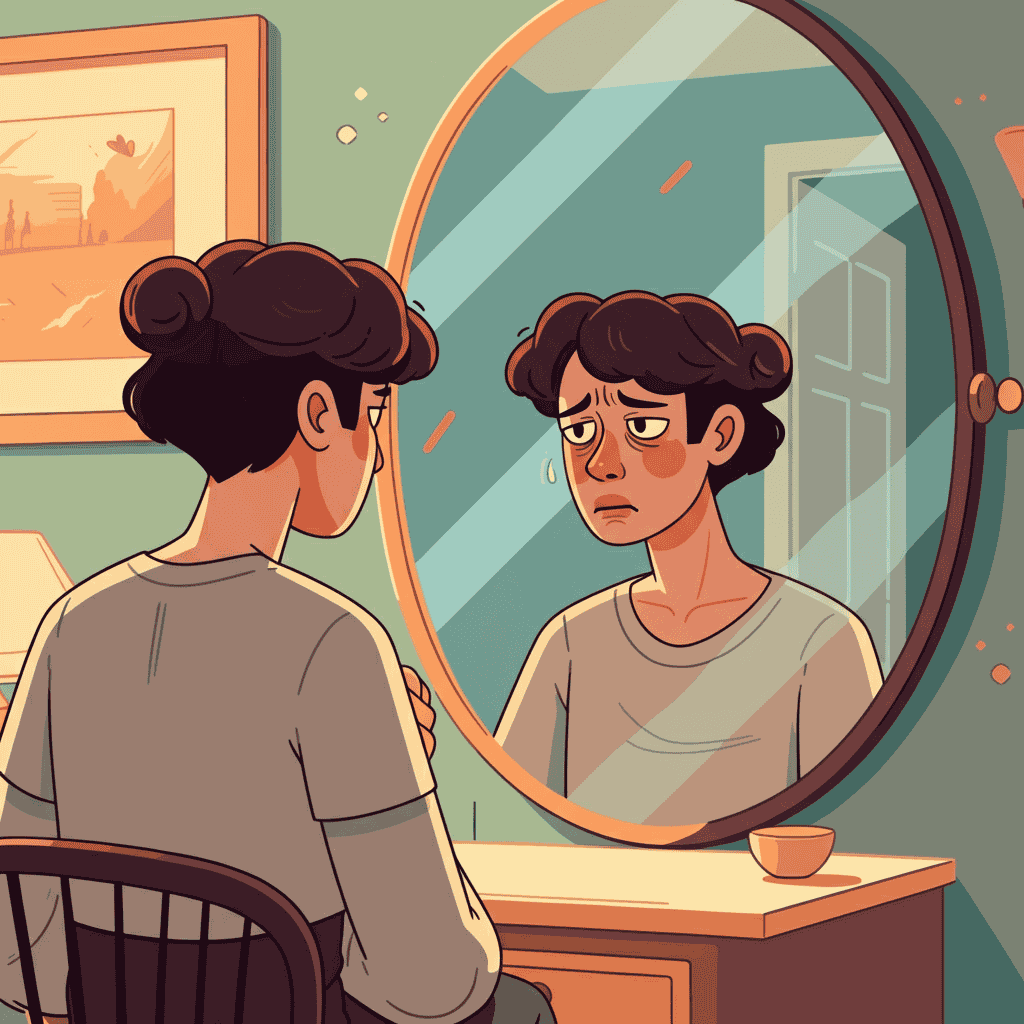
While spiritual beliefs provide a cultural framework for mirroring fear, psychology offers insights into the internal conflicts that can manifest as a phobia. The psychological reasons for fear of mirrors are often tied to self-perception, identity, and unresolved emotional issues.
1. The Uncomfortable Truth of Self-Reflection
On a fundamental level, a mirror forces self-awareness. It confronts you with yourself, stripped of the internal narrative you might prefer. For individuals struggling with low self-esteem, guilt, or shame, this forced confrontation can be incredibly painful.
The mirror reflects not just a physical image but also, metaphorically, the parts of themselves they wish to avoid. It can trigger feelings of self-loathing or judgment, making avoidance a natural defense mechanism. In this context, the fear is not of a ghost, but of the inner critic that the reflection seems to animate.
2. A Disconnect with Identity (Depersonalization)
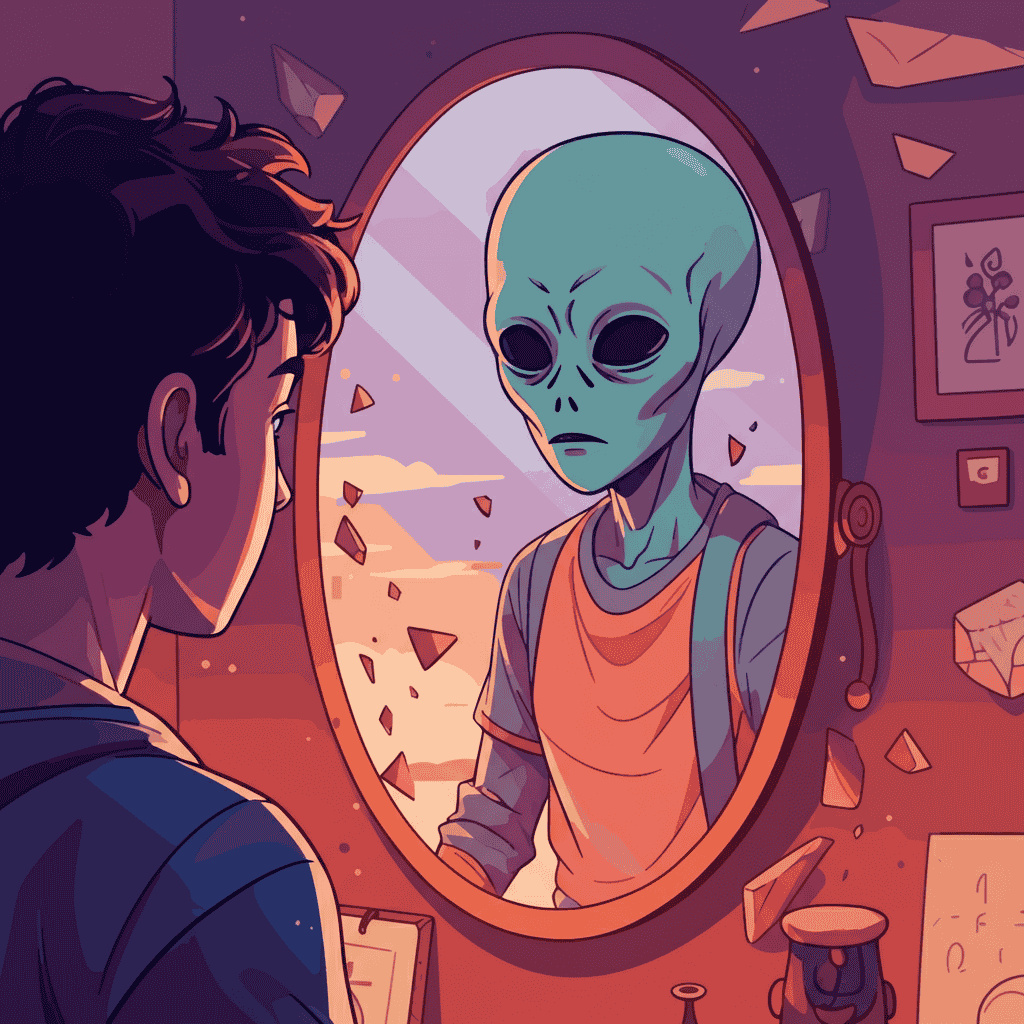
For some, looking in a mirror triggers a disturbing feeling of dissociation or depersonalization—the sense that the person in the reflection is a stranger. This can be a symptom of severe anxiety, trauma, or a burgeoning identity crisis.
The face looking back feels alien, creating a frightening disconnect between one’s internal sense of self and their physical form. This experience can make a person question their own reality and sanity, making mirrors a source of intense psychological distress. This is often a core component of eisoptrophobia, the fear of one’s own reflection.
3. Fear of Mortality and the Passage of Time
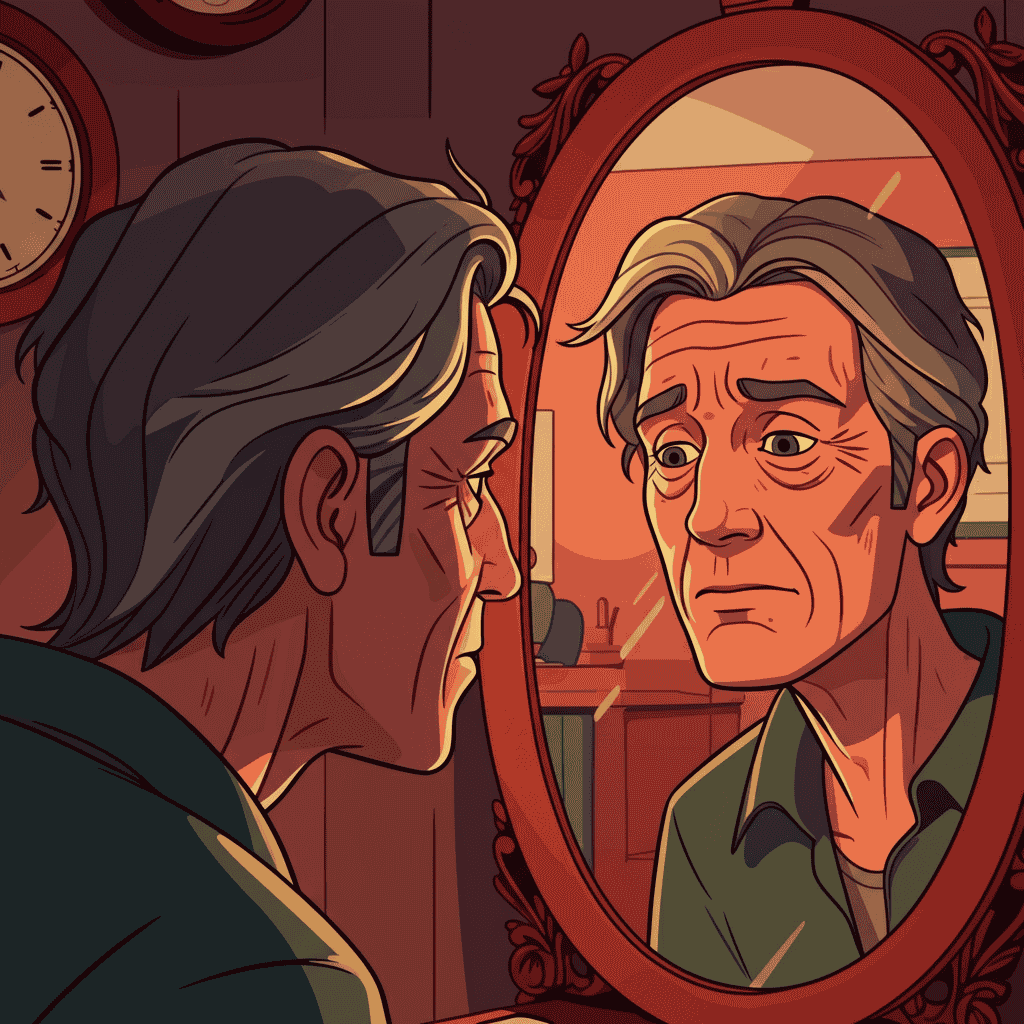
A mirror is an undeniable record of the passage of time. It shows us every new wrinkle, gray hair, and sign of aging. For those with existential anxiety or a deep-seated fear of death, the reflection is a constant, unavoidable reminder of their own mortality.
Each glance can feel like a step closer to the inevitable, triggering profound anxiety about life’s finiteness. The mirror becomes a symbol of decay and loss, and avoiding it is a way to temporarily deny the uncomfortable truth of aging and death.
Bringing it Together: How Spiritual and Psychological Interpretations Intersect
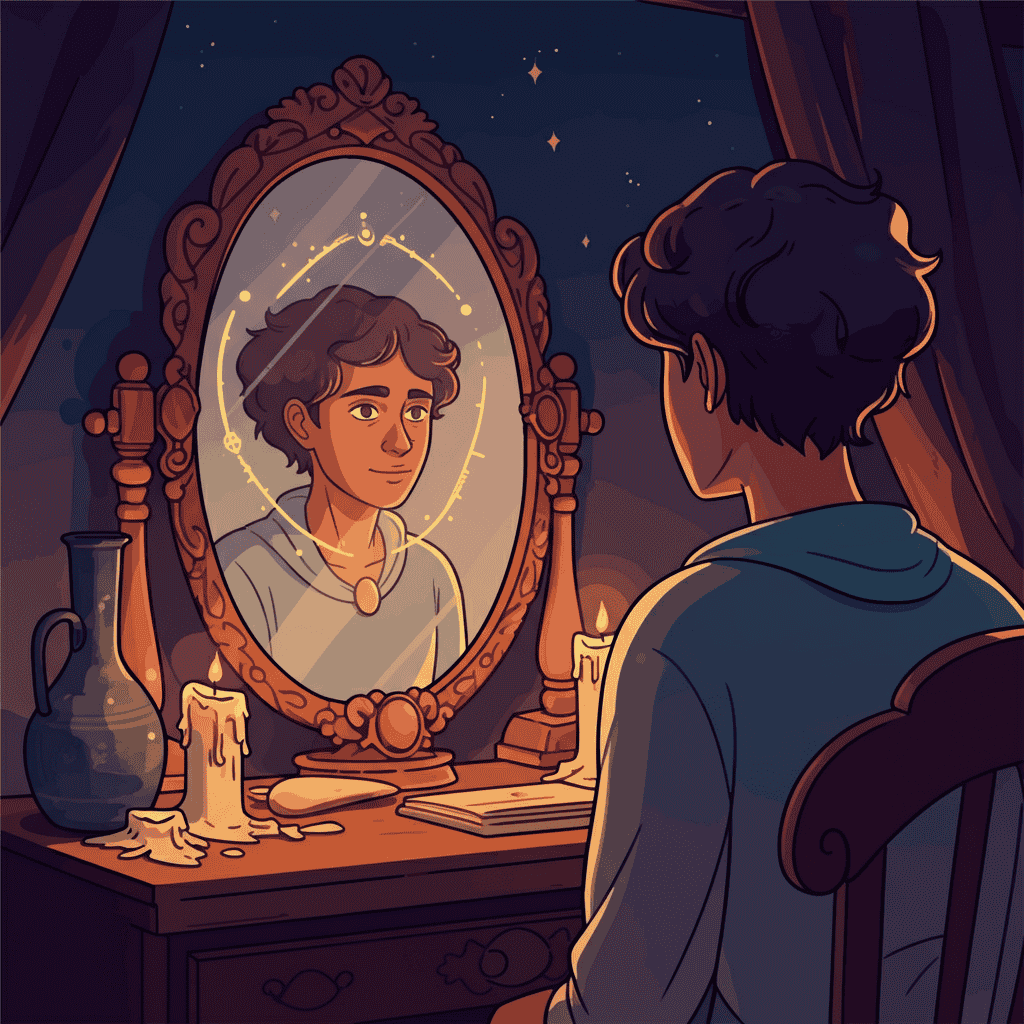
These two sets of interpretations are not mutually exclusive; they often feed into each other. For example:
- A psychological fear of aging (psychological) might be expressed as a fear of seeing a skull-like face in the mirror, which then gets interpreted as a supernatural omen (spiritual).
- A cultural belief in mirrors as soul-traps (spiritual) can amplify the anxiety felt by someone with body dysmorphia, making them feel their “flawed” self is being judged and captured by the reflection (psychological).
- The perceptual illusion of the Troxler effect, where features distort (psychological), can be seen as “proof” that a mirror is a portal to an evil dimension (spiritual).
These mirror phobia interpretations show that the fear is rarely about one single thing. It is a complex web of cultural conditioning, personal history, and innate psychological processes.
Conclusion: Finding Meaning and Healing in the Reflection
Understanding the spiritual and psychological meanings behind mirror fear can be an empowering first step toward healing. It allows you to reframe your anxiety, not as an irrational quirk, but as a meaningful signal from your psyche.
Recognizing these interpretations helps you to:
- Demystify the Fear: Knowing that your fear is rooted in ancient myths or common psychological phenomena can reduce its power.
- Identify the True Source: You can begin to ask whether your fear is truly about a ghost, or if it’s about self-acceptance, a fear of death, or unresolved guilt.
- Seek Appropriate Help: This understanding can guide you toward the right support, whether that involves challenging superstitious beliefs through CBT or addressing deep-seated self-image issues with a therapist.
Your reflection tells a story. By exploring both the spiritual and psychological narratives tied to it, you can begin to change that story from one of fear to one of understanding and, ultimately, acceptance.
